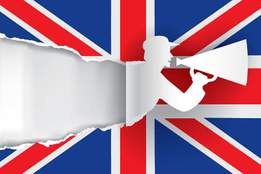dinosaur
noun
di·no·saur
ˈdī-nə-ˌsȯr 

1
: any of a group (Dinosauria) of extinct, often very large, carnivorous or herbivorous archosaurian reptiles that have the hind limbs extending directly beneath the body and include chiefly terrestrial, bipedal or quadrupedal ornithischians (such as ankylosaurs and stegosaurs) and saurischians (such as sauropods and theropods) which flourished during the Mesozoic era from the late Triassic period to the end of the Cretaceous period
The dinosaurs, which once dominated the earth, disappeared very swiftly, leaving room for tiny shrewlike creatures to crawl out of shelter and start on the road to mammalian domination of the planet.— D. E. Thomsen
D. E. Thomsen
 D. E. Thomsen
D. E. ThomsenMost scientists now concur that at least one great extraterrestrial object struck the planet around the time the dinosaurs died out.— Rick Gore
Rick Gore
 Rick Gore
Rick Gore
also
: any of a broader group that also includes all living and extinct birds
The overwhelming majority of scientists are now convinced that birds are theropod dinosaurs … — James O'Donoghue
James O'Donoghue
 James O'Donoghue
James O'Donoghue Note: Dinosaurs have traditionally been considered a separate group from birds, which evolved from dinosaurs, but modern paleontologists now view birds as survivors of a theropod lineage of dinosaurs. In this classification, all dinosaurs except birds became extinct at the end of the Cretaceous period approximately 65 million years ago, with all dinosaurs that are not birds referred to as dinosaurs or non-avian dinosaurs and birds typically referred to as avian dinosaurs.
2
: any of various large extinct reptiles (such as an ichthyosaur or mosasaur) other than the true dinosaurs
3
: one that is impractically large, out-of-date, or obsolete
The factory is now a rusting dinosaur.
Love words? Need even more definitions?
Merriam-Webster unabridged













Share